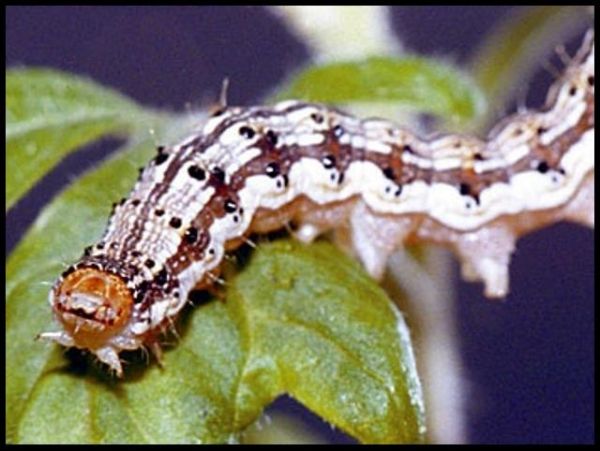Like a scene from a horror movie, tomato fruitworm caterpillars silence their food plants’ cries for help as they devour their leaves. That is the finding of a multidisciplinary team of researchers, who said the results may yield insights into the abilities of crop plants — such as tomato and soybean — to withstand additional stressors, like climate change.
“We have discovered a new strategy whereby an insect uses saliva to inhibit the release of airborne plant defenses through direct manipulation of plant stomata,” said Gary Felton, professor and head of the Department of Entomology at Penn State, noting that stomata are tiny pores on plant leaves that regulate gas exchange, including plant defensive emissions and carbon dioxide, between the plant and the environment.
Specifically, the researchers studied the effects of a particular enzyme — glucose oxidase (GOX) — that occurs in the saliva of tomato fruitworm caterpillars — Helicoverpa zea — on plant stomata and plant defensive emissions, called herbivore-induced plant volatiles (HIPV).
“HIPVs are thought to help protect plants from insect herbivores by attracting natural enemies of those herbivores and by alerting neighboring plants to the presence of herbivores nearby,” Felton said. “Consequently, stomatal closure has the potential to alter interactions across the entire plant community.”
Read more at Penn State
Image: Researchers have discovered that tomato fruitworm caterpillars silence their food plants' cries for help as they devour their leaves. (Credit: Nick Sloff, Penn State)


